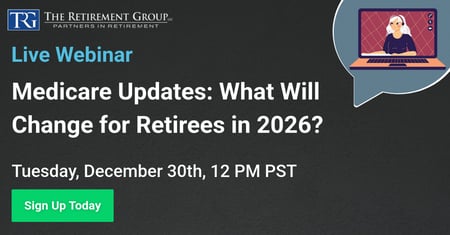According to a study by the National Institute on Retirement Security (NIRS) published in August 2021, nearly half of all Americans aged 65 and older rely on Social Security for 50% or more of their income in retirement. While the proposed legislation, the Securing a Strong Retirement Act of 2022, seeks to improve retirement savings options for Fortune 500 employees and retirees, it's important for individuals approaching retirement age to consider their reliance on Social Security and plan accordingly.
Congress is currently considering legislation that could benefit Fortune 500 employees and retirees with individual retirement accounts (IRAs) and retirement plans. The Securing a Strong Retirement Act of 2022 has passed the House with near unanimity. The Senate has drafted a similar measure (with some differences), the Enhancing American Retirement Now Act, but further consideration will have to wait until Congress returns in November. If the Senate passes its bill, the House and Senate would need to reconcile the two measures before voting on the resulting bill.
Below is a summary of key provisions in the proposed legislation that may aid your Fortune 500 retirement planning.
| Contributions |
| House |
Senate |
| Beginning in 2024, the $1,000 catch-up contribution limit for individuals aged 50 and older would be indexed for inflation. |
Beginning in 2023, the $1,000 catch-up contribution limit for individuals aged 50 and older would be indexed for inflation. |
| Starting in 2024, the catch-up contribution limit for workplace retirement plans such as a 401(k) would be increased to $10,000 (indexed for inflation) for participants aged 62 to 64. |
Starting in 2025, the catch-up contribution limit for workplace retirement plans such as a 401(k) would be increased to $10,000 (indexed for inflation) for eligible participants aged 60 to 63. |
| Starting in 2024, the catch-up contribution limit for SIMPLE plans would be increased to $5,000 (indexed for inflation) for participants aged 62 to 64. |
Beginning in 2025, the catch-up contribution limit for eligible participants aged 60 to 63 in SIMPLE plans would be increased to $5,000 (indexed for inflation). |
| Beginning in 2023, an employer would be permitted to make matching contributions to a defined contribution plan such as a 401(k) on behalf of an employee making qualified student loan payments. |
Beginning in 2024, an employer would be permitted to make matching contributions to a defined contribution plan such as a 401(k) on behalf of an employee making qualified student loan payments. |

| Distributions |
| House |
Senate |
| The current minimum distribution age of 72 for required minimum distributions (RMDs) from retirement accounts would be increased to 73 in 2023, 74 in 2030, and 75 in 2033. |
For calendar years after 2031, the current minimum distribution age of 72 for required minimum distributions (RMDs) from retirement accounts would be increased to 75. |
| Beginning in 2023, the penalty for neglecting to make an RMD will be reduced from 50% to 25%. In addition, the penalty would be reduced to 10% if the taxpayer corrects an RMD deficiency and files a revised tax return before the earlier of (a) when the IRS demands payment or (b) the end of the second taxable year following the taxable year in which the penalty was imposed. |
Beginning in 2023, the penalty for neglecting to make an RMD will be reduced from 50% to 25%. In addition, the penalty would be reduced to 10% if the taxpayer corrects an RMD deficiency and files a revised tax return before the earlier of (a) when the IRS demands payment or (b) the end of the second taxable year following the taxable year in which the penalty was imposed. |
| Individuals age 7012 and older would be permitted to make a one-time election for a QCD of up to $50,000 (to be adjusted for inflation) to a charitable remainder unitrust, charitable remainder annuity trust, or charitable gift annuity. |
Individuals age 7012 and older would be permitted to make a one-time election for a QCD of up to $50,000 (to be adjusted for inflation) to a charitable remainder unitrust, charitable remainder annuity trust, or charitable gift annuity. |
| After the date of enactment, an exception to the penalty for early distributions from a retirement plan would apply to distributions of up to $10,000 made to a domestic violence victim. |
After the date of enactment, an exception to the penalty for early distributions from a retirement plan would apply to distributions of up to $10,000 made to a domestic violence victim. |
| Other |
| House |
Senate |
| Beginning in 2023, SIMPLE and SEP Roth IRAs would be authorized. |
Beginning in 2024, SIMPLE and SEP Roth IRAs would be authorized. |
| If a retirement plan permits it, beginning with contributions made after the date of enactment, an employee may elect to have employer-matching contributions regarded as Roth contributions. |
If a retirement plan permits it, beginning with contributions made in 2023, an employee could elect to have employer-matching contributions regarded as Roth contributions. |
Conclusion
Retirement planning can be compared to gardening. Just like how a gardener carefully plans, prepares the soil, selects the right plants, and takes care of them throughout the season, retirement planning requires careful planning, choosing the right financial products, and monitoring them over time. While a gardener may need to adjust their plan if the weather or soil conditions change, retirees must also make adjustments to their financial plan if unexpected life events occur. Ultimately, both gardening and retirement planning require patience, perseverance, and the ability to adapt to changing circumstances.